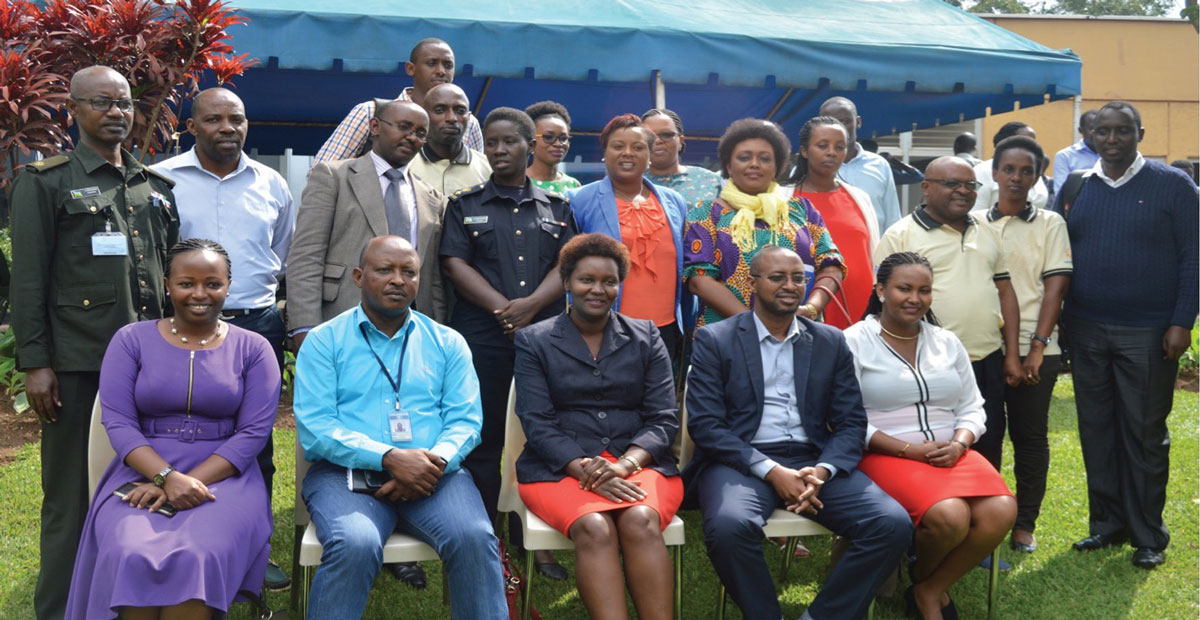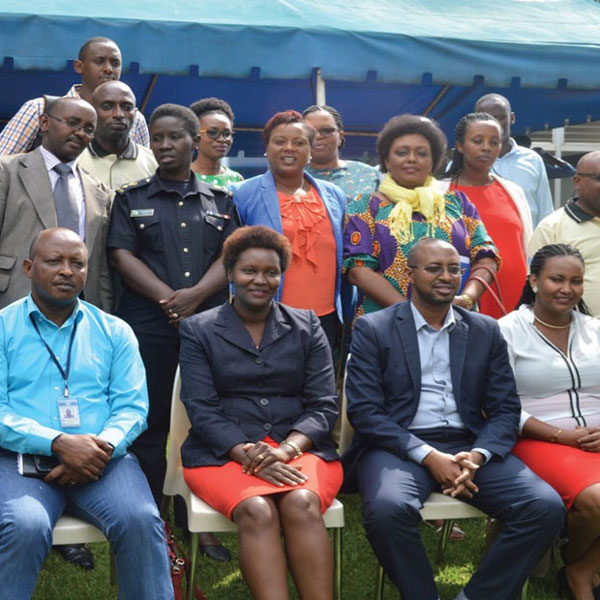
Prevention+ is a multi-country program – coordinated internationally by Equimundo, Rutgers, and Sonke Gender Justice – that envisions a world where healthy, respectful, and equal relationships are the norm. To contribute to making this a reality, the program addresses the root causes of gender-based violence: the social, economic, religious, and cultural contexts that shape attitudes and behavior that lead to violence.
Halfway through the five-year program, Prevention+ partner the Rwanda Men’s Resource Centre (RWAMREC) has made strides toward gender-transformative change in Rwanda through a multi-pronged approach that includes interactive programs, media engagement, and targeted advocacy.
Work With Youth and Adults
As part of Prevention+, RWAMREC is working to change young men’s and women’s mindsets about gender-based violence through Youth4Change clubs in all 55 secondary schools in Rwanda’s Karongi District. The Youth4Change clubs in each school are made up of about 60 girls and boys who meet once a week to discuss issues related to gender. The groups are assisted by school-based staff trained by RWAMREC.
Teachers and educational authorities from the Karongi District have observed that school environments have become more equitable after students and school staff engaged in sessions on gender norms and gender equality. For example, boys used to leave most of the work at school like sweeping, moping, cleaning tables, and washing dishes to girls, while boys had more time to play and relax. The youth are now more equitably responsible for these duties.
In addition to working with students, the Prevention+ program also engages adults through an initiative called Parents’ Evening Dialogue. This forum allows men and women living in the same village to meet to discuss and adopt strategies to improve relationships and prevent sexual and gender-based violence in households and elsewhere in the village. Parents’ Evening Dialogue sessions include public discussions, cultural celebrations, home visits, support to vulnerable families, and other activities.
Reflection and advocacy meetings have now brought together parents, educators and local leaders to share lessons learned from the Parents’ Evening Dialogue and the discussions happening in the Youth4Change clubs. Attendees reported feeling responsible for change and empowered to prevent gender-based violence. They also expressed a need for joint monitoring meetings and the development of evaluation tools, to ensure improvements and address any challenges that may emerge.
Work With the Media
In Rwanda, many members of the media have limited knowledge of gender-based violence and of how men and boys can work to prevent it. In response, RWAMREC carried out a consultation workshop in October with members of the media, through Prevention+, to expand their understanding of gender-related issues and explore their role in the promotion of gender equality and ending gender-based violence.
Thirty-five media groups were invited to attend this discussion around their understanding of gender, as well as what should be done to engage men in gender-transformative approaches.
Although the subject matter was new to some, many attendees responded positively to the workshop. “I thought that when you talk about engaging men, [that] means making men submissive and that gender was more useful for women. But now I have a different understanding, that men have to own this,” said one editor.
Work with Government Partners and Key Stakeholders
In a September meeting of national stakeholders, participants from sector ministries, relevant government agencies, and civil society organizations expressed support for mainstreaming gender-transformative approaches in Rwanda. During the meeting, participants expressed the need for greater budget support for national programs that transform harmful masculine norms to promote gender equality.
The government of Rwanda has adopted policies that promote positive masculinities as a strategy to decrease gender-based violence. These include the National Gender Policy (2010) and the National Policy Against Gender-Based Violence (2011), which guide interventions of all stakeholders in gender-based-violence prevention. The government has committed at the national and international levels to engage boys and men in gender equality.
